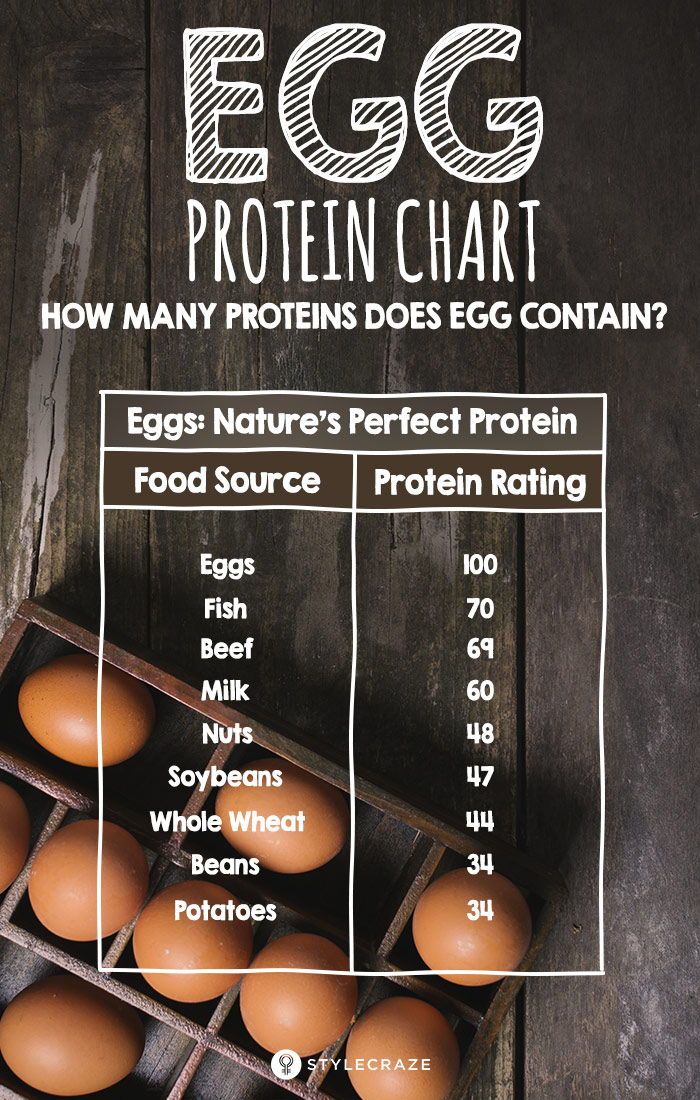An egg contains five to eight grams of protein, supporting skin health and muscle repair. Egg proteins are complete proteins with all the essential amino acids found in the egg’s yolk and white.

Protein Content Of Eggs
Eggs are a great source of protein, with an average of 5 to 8 grams per egg, depending on size. Protein plays a vital role in supporting skin health and repairing muscles.
Protein Content Of Egg White
Egg whites are one of the best sources of high-quality protein. They contain essential amino acids that our bodies need for growth and repair. The protein content of egg whites is quite impressive. An average-sized egg white, approximately 33 grams, contains around 3.6 grams of protein. This means that almost 90% of the calories in egg whites come from protein. So, if you want to achieve your daily protein requirements, including egg whites in your diet can be a great option.
Protein Content Of Egg Yolk
Egg yolks also contain proteins in lower quantities than egg whites. On average, a single egg yolk, approximately 17 grams, has around 2.7 grams of protein. Although the protein content of egg yolks is lower, they also provide other essential nutrients like vitamins A, D, E, and B-complex vitamins. So, even though most of the protein is found in the egg white, don’t neglect the valuable nutrients in the egg yolk.
Total Protein Content Of A Whole Egg
When you combine the egg white and yolk protein contents, you get the total protein content of a whole egg. On average, a whole egg, approximately 50 grams, contains around 6.3 grams of protein. This means that an entire egg is a complete protein source, including essential and non-essential amino acids required by our bodies. Additionally, eggs are easily digestible and can be consumed in various forms, like boiled or scrambled, or in recipes, making them a versatile and convenient source of protein.

Benefits Of Egg Protein
Egg Protein Chart reveals the protein content of eggs, which can vary between five to eight grams per egg. Eggs are a rich source of protein that supports skin health and muscle repair.
Supporting Muscle Growth And Repair
Protein is a crucial nutrient for muscle growth and repair; eggs are known for their high protein content. Eggs are considered a complete protein source, meaning they contain all the essential amino acids that the body needs for optimal muscle development and repair. The amino acids in eggs promote muscle protein synthesis, which helps to rebuild and strengthen muscles after exercise or physical activity.
Promoting Skin Health
Protein plays a vital role in maintaining healthy skin. Eggs are rich in collagen-boosting amino acids such as proline and glycine, which are essential for skin repair and regeneration. These amino acids help to improve skin elasticity, reduce the appearance of wrinkles, and promote a healthier complexion. Incorporating eggs into your diet can contribute to healthier, more radiant skin.
Other Health Benefits
In addition to supporting muscle growth and promoting skin health, egg protein offers various other health benefits. Eggs are a nutrient-dense food packed with essential vitamins and minerals, including vitamin B12, vitamin D, and selenium. Vitamin B12 is necessary for maintaining healthy blood cells and nerve function, while vitamin D helps with calcium absorption and bone health. Selenium is a powerful antioxidant that supports immune function and protects against cellular damage.
Eggs also provide choline, a nutrient essential for brain health and development. Choline plays a role in neurotransmitter synthesis and helps maintain the integrity of cell membranes. Including eggs in your diet can help support brain function and overall cognitive health.
Moreover, eggs are a cost-effective and convenient source of high-quality protein. They are versatile and can be easily incorporated into various dishes, such as omelets, salads, or sandwiches. Whether you’re looking to build muscle, improve skin health, or reap numerous other health benefits, eggs are a nutritious addition to any diet.
:max_bytes(150000):strip_icc()/egg_annotated2-2cfc8b95948545b8b5efea5feb62e69d.jpg)
Frequently Asked Questions On Egg Protein Chart: How many proteins does an egg contain?
How Much Protein Is In An Egg Count?
An egg contains between 5 to 8 grams of protein, which helps support skin health and repair muscles.
Are two eggs a Day enough protein?
Two eggs provide approximately 12–16 grams of protein, a good amount for a meal or snack.
Is one egg enough protein for a day?
One egg contains between five and eight grams of protein, which can help support skin health and repair muscles. It may not be enough to meet your daily protein requirement.
How Much Protein Is In 2 Full Eggs?
Two whole eggs contain about 12 grams of protein.
Conclusion
Eggs are a great source of protein, as they contain between five and eight grams of protein, depending on their size. Protein is essential for maintaining skin health and repairing muscles. Incorporating eggs into your
So, don’t forget to add eggs to your breakfast for a nutritious start to your day.

